Of Beasts and Persons
The beast in me
Is caged by frail and fragile bonds
Restless by day
And by night, rants and rages at the stars
God help the beast in me
The beast in me
Has had to learn to live with pain
And how to shelter from the rain
And in the twinkling of an eye
Might have to be restrained
God help the beast in me
What if the basic Judeo-Christian message is essentially this: that God wants us to evolve away from being beasts and towards being whole, complex, completely realized human persons?
What if we are called by God to be less like Daniel's beast with its horn and to become "One like a son of man" — or, in the Christian worldview, to become more like Jesus Christ himself?
What if that within us which "rants and rages at the stars" and which "might have to be restrained" is sin ... and sin is, by definition, whatever keeps us from evolving into the fully human, Christlike persons God wants us to be? What if the idea of recognizing the Son of Man in his "kingship" stands, first and foremost, for that which allows us to mature and evolve into complete human persons?
What if becoming more highly evolved as individual human beings is all about learning to put other people's needs ahead of our own, in the sincere spirit of community and service to which we are customarily called from the Christian pulpit.
Then, among other things, we would have little trouble squaring our religion with evolution science! Assuming, that is, that the theory of evolution is reconfigured to note a built-in directionality in evolutionary history toward increased biological and cultural complexity, and thus toward the ability of organisms such as we to profit more and more from cooperative, unselfish, non-zero-sum games (see We the Probable for more on that subject).
The signature complexity which tilts us toward lives of giving, caring humanity, and not those of cruel beasts, is what furnishes purpose and meaning to biological, cultural, and personal evolution. This augmentation of biological and then cultural complexity ultimately comes from the Creator, yes — but it comes through the operation of law together with chance in an ever-evolving natural world. So, yes, it's a sign from God. But, no, it's not the kind of strictly supernatural sign proponents of Intelligent Design say advanced complexity is, if it's sufficiently complex as to be highly improbable — as with eyes or wings — and if it possesses some independently comprehensible "specification" — e.g., sight, flight — as well.
It's not a sign from God, in other words, that bypasses or overrides natural law. Rather, it's a sign that natural laws (including the laws of probability or chance) themselves act as God's handmaiden, if you will, furthering his intentions in a world he creates and sustains in its existence.
Hence not all divine signs are supernatural signs. Evolution by natural, lawful processes is a sign from God. It has a meaning. Its meaning: that God wants us to evolve as well. He wants us to mature into caring, fully developed, Christlike human persons ... and to outgrow the beast within.






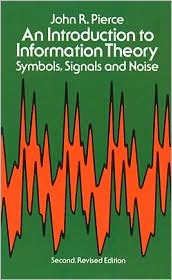

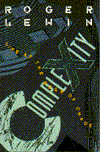

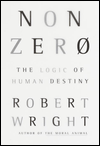



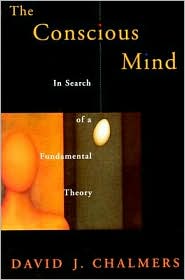
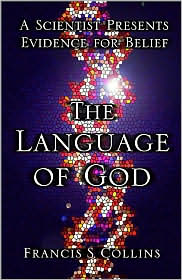


3 Comments:
After I have read your stupendous blog "Beyond Darwin", pleases to me to recognize that I feel myself as pertaining to the same "basin of attraction" and to the same "dominion in the taxonomy of evolucionary views" that you.
In effect, I believe that in the cosmic evolution there is directionality, shown in certain tendencies, that at basic levels are translated in laws of increasing complexity by self-organization. Those tendencies have produced a cosmic process of emergent evolution, acting like "drops of providence in the middle of a sea of chance and necessity", presents in the "more intimate intimacy" of each event. So that we can say that all complex organ or organism, even being CSI, is product of the combination of those laws with the natural selection, and therefore of the nature by itself, with no need of supernatural miraculous interventions. But this does not impede that those laws can be the manifestation of the spirit of God, operating on the inside of the universe in his creative process.
I also, like you, I am Christian-catholic of open mentality. And I want, like you, to recognize the action of the spirit of God within the cosmic evolutionary process. Nevertheless I must admit, like you, that nothing of the saying demonstrates nor can demonstrate the presence of the Christian God. Which is not strange, because we believe in a kenotic God that empties himself, that is hidden, immanent, that creates a truely autonomous universe.
What does God purpose after all? He purposes to us, the humanity who at the moment we are, as purpose of the immense cosmic evolution? I would say yes, like you, in certain way, because we are now the last step of the scale of the being, the last emergence of the chain of emergences that began with the Big Bang and soon continued through the series of emergent new features that were appearing, first in the inanimate world and then in Life and Conscience.
But can be this so unjust humanity, so miserable, unhappy and imperfect, which purposes God finally? It seems to me that you answer indicating to the lessons of Jesus Christ -and deeply to the model of the trinitarian love- as the way to obtain a really human society, nonbeastly, released finally of all those evils; that this yes could be the cosmic goal. Thus a new apocalyptic catastrophe would be avoided, like those which have happened previously for not to have applied correctly the principles of the Christian charity, and it would obtain finally the kingdom of permanent peace and justice.
Nevertheless, I believe that -as you also have suggested- moral good behavior is not sufficient, although were obtained perfectly in all and each one of the people, to obtain the kingdom of God. I imagine the kingdom of God as the final goal of the cosmic process, as the Last Newness, the Final Emergence. There must disappear every badly physical and moral, must be realized all the potentialities in the nature and must be fulfilled all human aspirations. And not only for the lucky human beings who possibly live in that final stage, but for all those that they have existed or even can exist. There they must find authentic and complete repair all the tragedies of history, like those of Auschwitz and of Hiroshima, or the implicit ones in each bed of hospital, each cell of prison, or each tomb.
It is too utopian? Then that must be, in my opinion, at least, the kingdom of God. And that one is the kingdom that announced Jesus Christ as imminent; the eschatological sense is not something added later by the Christianity: in fact, it came pointing the concept in the Jewish apocalyptics from at least two centuries before Christ. Only that eschatological conception that burst in with the faith into the resurrection of Christ, and consequently of all we the men, who is the essence and the origin of our Christianity, can satisfy all the human hopes and constitute the goal of the cosmic evolutionary process.
For that reason, although doubtless the moral behavior is necessary according to the lesson of Christ: "love one another, as I have loved you", it is not sufficient; in addition is necessary the action of the spirit of God that by his grace redeems us.
All it can seem too mystical and even mythical to be included in a commentary on your blog "Beyond Darwin"; it can be considered more appropriate in reference to your other blog "Jesus before Christianity". (With this last one I do not feel so in agreement as with the first, by the reasons already exposed). But I must affirm that of no way it seems to me mythical, but indispensable to express our Christian faith suitably.
I think that the human level is not the last level of emergence, is not the final goal of the cosmic process. I believe that there must be other new levels of emergence, for which our ethical behavior will be certainly decisive, and for that reason the human beings we are equipped with ethical, aesthetic and cognitive tendencies. Each new level of emergence will trascend to the previous ones: it will be an unpredictable and irreducible radical newness. And the last level of emergency -the Last Newness- will trascend completely to the universe, the time and the space; the kingdom of God will be then, the same trascendent God, that acts from there with a second kenosis to redeem us and to incorporate us to an eternal life with Him and in Him.
I have developed these ideas in my website (in Spanish): http://galetel.webcindario.com
and also in my blog (in English): http://en-galetelapuntes.blogspot.com and its links.
I would like to enter into a dialogue on it with you, because I have gotten to appreciate very much your points of view reading your wonderful posts.
A warm greeting. (And I apologize for my badly English).
Gabriel Letelier
Gabriel, I think your idea that a "kenotic God" who "empties" himself, insofar as how he relates to his evolving, "truly autonomous" creation, is very insightful indeed.
I must confess that I feel less certain than you as to what particular eschatological outcome to expect, and when. I also must confess that I'm not quite sure, from what you have said, where you disagree with my thoughts in the "Jesus Before Christianity" blog.
I think your English is excellent, and even if it weren't, I would be happy to enter into a dialogue with you about these matters.
Thank you for your thoughtful comment.
Eric
Thanks to respond to my previous commentary kindly, and to accept to engage in a dialog with me.
It surprises me to have given the impression of certainty about what eschatological event to hope, and when. In fact, I could not affirm nothing concrete respect to these two fundamental questions. It is true, nevertheless, that something I can say on both.
Respect to WHAT can be the eschaton, seems to me that, from a point of view of emergent evolutionism, it must be the "last newness", the "final emergence", that satisfies definitively all the potentialities or capacities of the reality, and therefore all the human aspirations. For this it will have to trascend completely the universe, the space-time. It is the true goal of the cosmic evolutionary process, and for that reason it is the last event. But these characteristics do not describe of positive way and makes specific the eschaton. Only they conceive it like limit of the tendencies that are discovered in the interior of the process.
Respect to WHEN to wait for the eschaton, speaking in terms of the universal or public time I only can conjecture that it must be a term that keeps some proportion with the evolutionary process. In effect, the eschaton is only conceivable after an evolutionary development able to transform the reality deeply, let´s say at least as the appearance of the life transformed the inanimate world. It is not a development that can obtain the present humanity by means of its technical or moral faculties. But I believe that the humanity plays a crucial role in it, like an indispensable stage, even being so small. By all the saying, if I am myself forced to consider a term, I must speak of thousands of million years, as it corresponds when speaking in the evolutionary scale.
Naturally, I realize that when speaking so about the eschaton I enter in conflict with two fundamental perspectives, that are of the greater importance for me.
One is the perspective of the present scientific cosmology, that seems to force us to conceive the final destiny of the universe like a "total thermal death", in that, instead of satisfying themselves, would be shipwrecked all our aspirations and capacities. In this perspective it is seen the eschaton like a definitive catastrophe, that leaves small any imaginable catastrophe on human scale. I think that it is a provisional vision, needed of a greater scientific development.
The other perspective is the one of the Christian message of.redemption, that announces the eschaton like imminent and rescuing. Can be imminent the eschaton -something that cannot be expected before thousands of million years? And in what sense it can mean my salvation? The answer must talk necessarily about my faith in the divine.redemption, and more concretely to my faith in the Redeemer.
From the remote future of the eschaton, God comes to us, to rescue us of our limited condition and to take to us with Him. This makes He in a huge plan that includes His revelation to Israel and His incarnation in Jesus Christ, by pure benevolent and merciful love towards us. For that reason, the eschaton that Jesus prophesied, the "kingdom of God", is the salvation for all, and corresponds to the correct interpretation of the promise done by God to Israel. It is not a "change" in the intentions of God, but the explanation of prophecies that often included too much "human noise". It is not of any way a catastrophe either, unless one so considers the disappearance of the old world of injustice and imperfection.
And it is imminent. Obvious, not in the universal time, public or historical; in that time they lack probably thousands of million years. But in my personal time, as it were in the personal time of Jesus. For him it arrived at the Golgotha, in his death/resurrection. For me, not only within about 20 or 30 years, the brief term that is left me of life (I am 62 years old), but right now, speaking in "proleptic time", the time of authentic anticipation in which we located ourselves mainly by means of the sacraments and by means of all genuinely Christian action, thanks to the Spirit who "comes from the Father and the Son".
For that reason, I cannot be in agreement with the approach of Nolan of the message of Jesus: "a catastrophe comes; in order to avoid it is necessary it to behave with compassion and solidarity, and then we will live in the kingdom of God ". On the contrary, I would say that the message, schematically, is: "the salvation for all comes, comes the kingdom of God, His gift; consequently, to receive it, let´s behave as He does, with compassion and solidarity."
"Apocalypse" means "revelation", but it has happened to mean "destruction” modernly. For that reason, usually it is called "apocalyptic" to a vision that predicts a destructive catastrophe globally. Many Christians, unfortunately, see therefore the action of God as a severe judge that would come to scrutinize faults and to punish hard, and to reward only to few chosen ones. I agree totally in rejecting this apocalyptic (in negative sense) and moralist conception. But also it seems to me apocalyptic and moralistic to conceive that the kingdom of God comes as alternative to an imminent historical catastrophe, and that only can be obtained by means of a generalized moral behavior.
I think that the kingdom of God is a gift for all, even being like we are, unjust, cruel and criminal, that only requests as answer -God loved the first- the compassionate and solidary attitude of whom that want to welcome it. It is not, then, apocalyptic in negative sense -destructive-, nor moralistic. It is a "madness for the Greeks (the rationalist ones) and a scandal for the Jews (the moralists)".
That kingdom of God, in spite of being a gift of God, is not independent of our action in the world. It results from the cosmic process in which we participate each one with our infinitesimal contribution. Nevertheless, it would be a folly to say that "we obtain it" with our personal action, nor even with the joint operation of all human history, because it results from a last creative emergence that implies to the spirit of God operating in the universe through all the process.
It does not escape to me, of course, that the saying sounds like unreal and uthopian. How much more realist were to be centered in the political and economic problems in the present world and to interpret the gospel from this "presentist" perspective! Thus has made the “theology of the liberation”, with the healthy and Christian intention to obtain peace and social justice in this world that as much lacks both. And it has tried to enlist to the same Christ in his point of view, interpreting him based on the social and moral problems of his time, of a way that would be the authentic one, before his disciples and the later Christianity came to give a too "celestial" sense to his words, and to divinize him in a magical sense by means of miracles and theological dogmas.
But God is -He must be- much more great that our political problems, and His much more deep solutions that the obtainable ones by a human society, by pacific and just that it could get to be. Without that means that for God lacks importance each particular human person and her small daily tragedies. On the contrary, indeed to end those concrete personal tragedies ours, of all those that now we live, all those that have lived, and all those that will live, is needed a cosmic process of countless centuries of duration, and a mystery of redemption that implies to the same God becoming like us, dying in cross death and reviving to take us with himself to the eternal life.
The peculiar thing is that we are at the moment in conditions for understanding that of a way far better, when having a now so ample cosmovision, on the dimensions and the times of the cosmic evolution, and the knowledge obtained by means of the modern exegesis, the historical critic and the hermeneutics of biblical texts. Without forgetting the great historic experience obtained by the long history of the Christian Church, in its plurality, and its traditions, and even in its abundant imperfections and errors. For that reason, thanks to the spirit of God that Christ has sent to us, we can affirm that we know the true meaning of the mission of Jesus better than he himself knew it during his historical life.
Post a Comment
<< Home